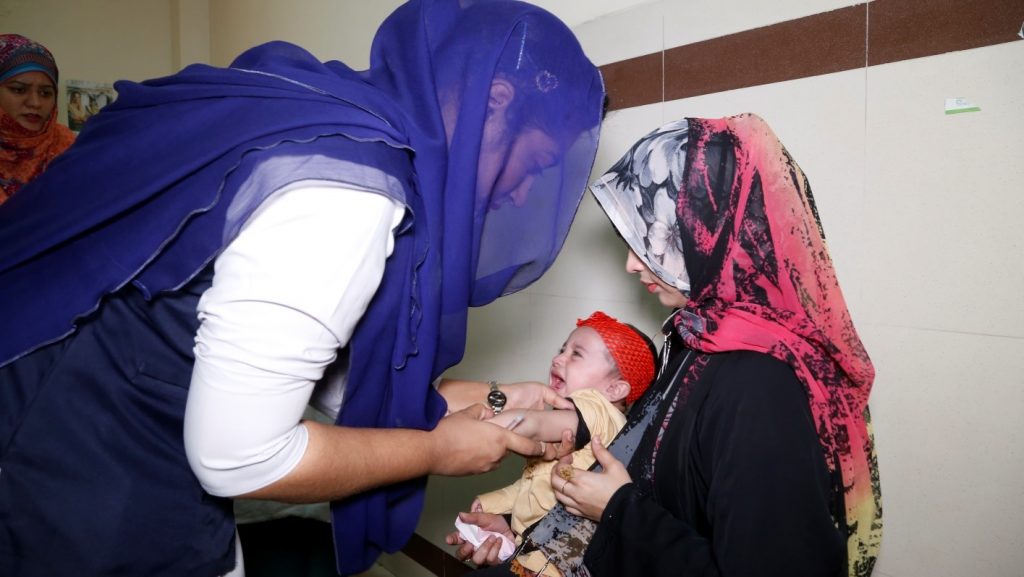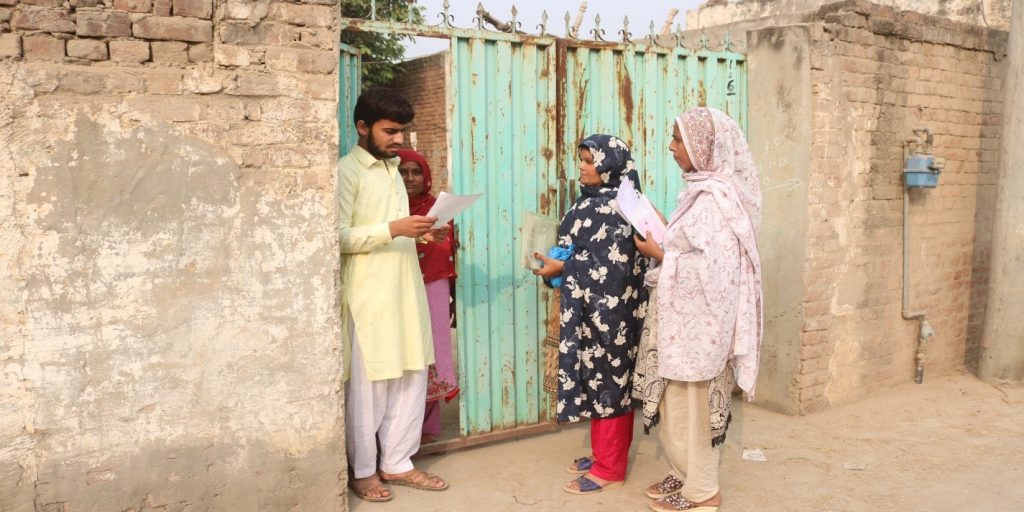Pneumonia
Pakistan has one of the highest infant mortality rates in the world, and over 50 per cent of deaths in post-neonatal children are attributable to pneumonia that can be partially prevented through immunization with vaccines.
In 2012, Pakistan introduced the Pneumococcal vaccine to inoculate children less than five years against Pneumonia through EPI. To make it known to the general public and medical professionals, Time and Space partnered with UNICEF, the UN’s children’s agency to reach out to the districts with the highest ratio of reported pneumonia deaths.
We conducted surveys to understand the psychographics, demographics and socio-economic status of residents. It showed that most of the pneumonia associated deaths occur in underprivileged segments of society where mothers are illiterate and dependent on men financially which ultimately gives men the decision making power in houses.
Therefore, our goal was to effectively reach out to both parents to decrease morbidity and mortality due to pneumonia. An inclusive approach was adopted to create awareness and behaviour change for the vaccination courses in both parents.
In rural areas, the influential people like headmasters, teachers, Panchayat leaders, Nambardars and Waderas were approached and encouraged to endorse the pneumonia campaign message. Community meetings and gathering were used to maximize awareness about the prevention of pneumonia through vaccination courses.
We arranged communication workshops and training for the health workers to effectively counsel and motivate families for vaccination courses and make sure that all families in their vicinity get their kids vaccinated. They were guided to register all the kids under 5 years of age to ensure immunization coverage for the. Lady health workers were trained for carrying out door to door vaccination. They educated mothers on how to look out for signs of pneumonia in their children to ensure immediate care.
However, the response from the illiterate segment of society was not very encouraging. They are more frightened about the perceived harm from a vaccine than the risk of the disease itself. Therefore Pneumonia awareness documentaries featuring celebrities from diverse backgrounds were aired on national and private TV channels.
TV artists used local languages to emotionally tap the audience. The Scripting, conceptualization and production of Pneumonia awareness documentaries were done after a proper understanding of demographic characteristics, cultural orientations, parent’s perceptions of disease prevalence, their vaccine-related knowledge, and their trust in the information provided by healthcare professionals and government.
Parents from rural, illiterate backgrounds had limited knowledge about the vaccination schedule to protect infants and children by providing immunity early in life. Therefore, 2D animation was used to capture the attention of parents and demonstrate the value of vaccination for the health of children. The animated info graphics guided parents with a detailed schedule on the vaccination process
To increase the impact of our campaign, we also used rickshaw branding in both rural and urban metros to make announcements about the vaccination schedules and the arrival of vaccination teams in different areas. The religious leaders were approached for endorsing the campaign message. They made announcements about the schedule of vaccination teams and encouraged parents to get their kids vaccinated against Pneumonia.
In Urban metros, brochures, fliers and streamers were displayed and workshops were arranged to promote the message of the campaign. We engaged student activists and volunteers from different universities and departments to organize workshops in public parks and community centers for persuading parents to get their kids vaccinated.
In addition to increasing awareness about the importance of immunization, the message also addressed the importance of nutrition and mother health which can play an important role in decreasing the risk of pneumonia in infants.



